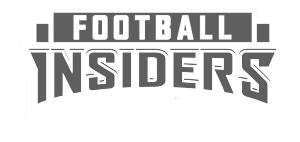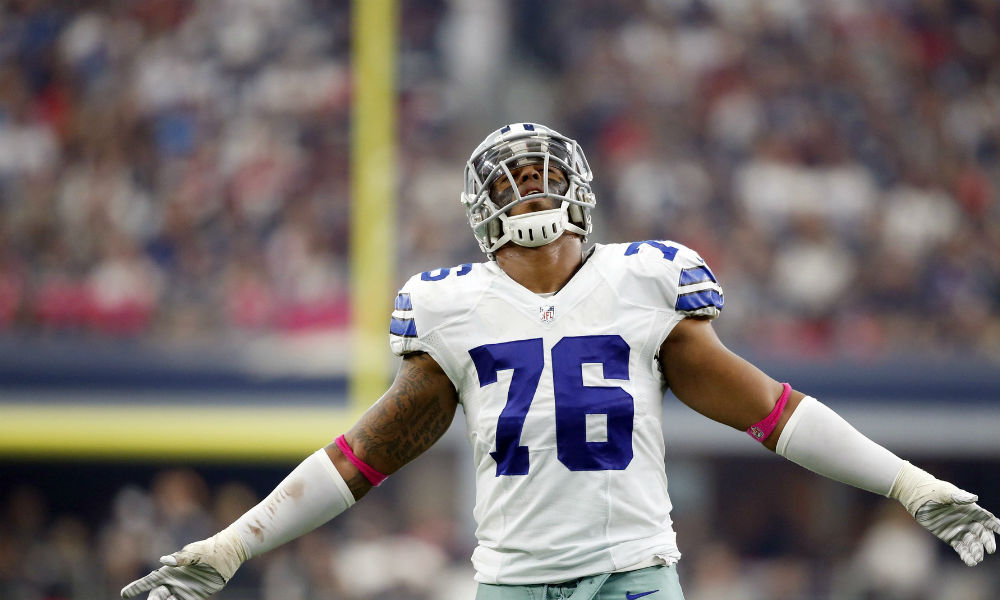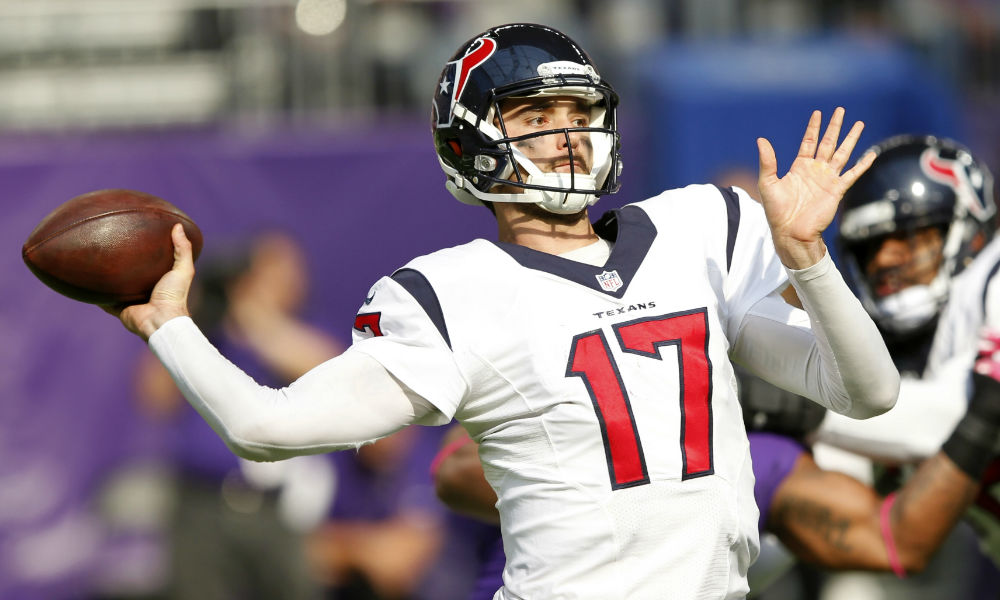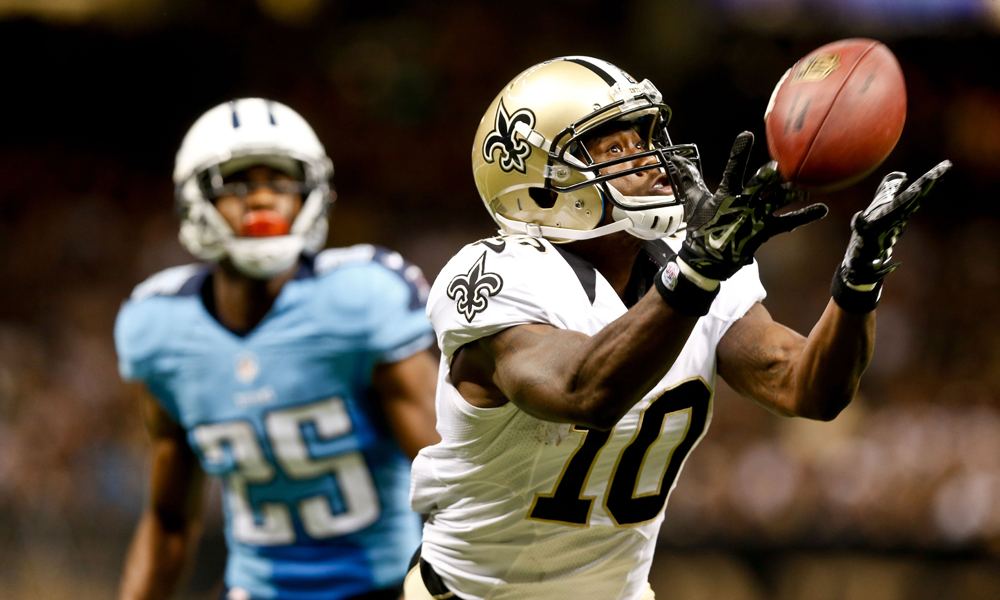News
Chip Kelly’s Cultural Revolution and the Potential For Major NFL Change
Chip’s makeover of Eagles could set new course for NFL culture.
When Chip Kelly was hired away from the University of Oregon to coach the Philadelphia Eagles in 2013, he was tabbed as a revolutionary. His arrival in the NFL was going to change the way pro teams played the game of football.
That hasn’t happened just yet and it may never reach the point where an up-tempo spread offensive scheme, like the one Kelly runs with the Eagles, becomes the norm in the NFL. However, there’s another strategy unfolding in Philadelphia, perhaps rooted in Kelly’s college coaching experience, that could change the culture of the game.
Since the day he arrived, Kelly has set a clear agenda to populate his roster with players that have bought into his ideals and will only positively impact the locker room culture of his team.
The release of guard Evan Mathis earlier this month is just the latest domino to fall in this process of clearing the Eagles locker room of personalities that don’t fit the mold. Mathis had become a malcontent, unhappy with his contract and his relationship with Kelly had soured as a result. That and that alone made the All-Pro guard, who graded out as Philadelphia’s best offensive lineman last season according to Pro Football Focus, expendable. The release of Mathis was also was far from the first instance of Kelly placing a higher value on a player’s desire to be a part of something bigger in Philadelphia than on that player’s individual talent.
It’s a trend that began in earnest in March of 2014, when the Eagles announced the shocking release of star wide receiver DeSean Jackson, who has spent six mostly successful seasons with the team. It wasn’t as if Jackson didn’t fit Kelly’s scheme. In fact, he was coming off the finest season of his career in Kelly’s first season as coach of the Eagles. But despite possessing incredible talent, Jackson, like Mathis, became expendable after he started to make noise about his contract. That among other issues surrounding the three-time Pro Bowl wide receiver led directly to his release.
“If you don’t buy in, we’ve seen what happens,” said tight end Zach Ertz, who was one of Kelly’s first draft picks with the Eagles. “Not to say that as a threat in any way, but we want guys that love the process each and every day, whether it’s June 1 or January 1 or whatever day the Super Bowl is. We need guys that are going to come in each and every day and work and I think that’s what we’re building right now.”
In saying as much, Ertz cited the “out of sight, out of mind” philosophy practiced by one of his former college coaches at Stanford. That is a mindset that permeates many college football programs. At the collegiate level, players are often benched or kicked off teams for violating codes of conduct. However, that’s a tough policy to implement at the pro level, where the talent is so much more disparate and the contracts values are so high that having talented players often takes precedent over having high character people on the roster.
But Kelly is taking that approach to his roster by any means necessary. The turnover has been stark, as now just 14 players remain on the Philadelphia roster who weren’t hand-picked by Kelly and his staff since he was hired in January of 2013.
“That’s what we’re trying to get,” Kelly said this offseason, “a bunch of guys who are good people.”
DIFFERENT APPROACHES TO A SIMILAR GOAL
Kelly’s management of the Eagles roster, and the culture he has cultivated in Philadelphia, runs in sharp contrast to that of the NFC East rival Dallas Cowboys, the team that beat the Eagles for the division crown last season.
Like Kelly, Cowboys coach Jason Garrett claims to value a winning culture, going as far as to note this week in an interview with ESPN that he spends as much time on the team’s culture and chemistry as he does on the game plan.
Perhaps that is a necessary evil for Garrett given the players on his roster. During Garrett’s tenure in Dallas, and even before that, the team has become known for offering second chances to players that have screwed up somewhere along the lines in the past.
Last season, the Cowboys gave a second chance to defensive tackle Josh Brent, who had been convicted of intoxication manslaughter in January of 2014 and served prison time as well as a NFL mandated 10-game suspension for an incident in December of 2012 where he was the driver in an accident that killed Cowboys teammate Jerry Brown.
Dallas also gave a second chance last year to running back Joseph Randle, who was arrested in October for shoplifting. Randle was arrested again this past February for possession of marijuana. Either incident would have likely meant the end of Randle’s stay with the team had he played for Kelly with the Eagles, but with the Cowboys, Randle still has a chance to takeover for the departed DeMarco Murray as the team’s lead running back.
“You have to constantly reinforce the behavior in the organization, positively and negatively, on a day-to-day basis and you never have it down-pat,” Garrett told ESPN’s Jean-Jacques Taylor. “We have to establish it every single day by what we do, what we say and how we present ourselves.”
Then there’s the team’s handling of wide receiver Dez Bryant. With a lot of help from the Cowboys, the star wideout seems to have put his off the field issues of the past far behind him, giving credence to Garrett’s ideals of establishing a culture that allows the players to grow. Yet Bryant is causing a different kind of ruckus, unhappy with the team’s decision to use the franchise tag on him and an inability to come to terms on a long-term extension. He’s threatened to sit out games in September if a long-term deal isn’t reached by the league’s July 15th deadline to sign the franchise tender, a deadline that will free negotiations until after the season.
It’s conduct that likely would have caused Kelly to send Bryant packing, but Garrett has remained supportive of his star wide receiver and it’s perhaps no coincidence that Bryant has shown up at OTAs and minicamp despite not being contractually obligated to do so.
“A big part of the culture is controlling the things we can control,” Garrett told Taylor. “What I try to do every day is wake up and do everything I can to build the kind of football team that we can all be proud of every day. I try to instill that mentality in our coaches and our players. That’s how we think. We try to control what we can control. We don’t worry what people say on the outside and try to do our best every day.”
The Cowboys are also hoping their mantra will get through to two of their biggest acquisitions this offseason, free agent defensive end Greg Hardy and second round draft pick Randy Gregory.
Hardy’s issues are well-documented. He’s currently awaiting the appeal of a 10-game suspension for conduct detrimental to the league after he was brought up on domestic violence charges stemming from an incident where he allegedly assaulted his now ex-girlfriend. The charges against Hardy were dismissed in February, but the details of the investigation were deplorable enough that the NFL decided to suspend him above and beyond their usual threshold.
Concerns surrounding Gregory aren’t quite as severe as Hardy but the 2015 draft pick’s behavior is also alarming. Once projected as a Top 5 pick, thanks to concerns over his marijuana use, stemming from a failed drug test at the Combine, Gregory tumbled past almost every team in the league twice before landing in Dallas. His selection could end up being a steal for the Cowboys, if they can get him in line, something Garrett is banking on.
“Not every guy who comes here is a finished product, but the culture we’ve established can help them grow and develop and become the right kind of guy,” Garrett told ESPN.
CHIP’S WAY OR THE HIGHWAY
Garrett’s approach to team culture is one Kelly either doesn’t believe his team is capable of or he doesn’t want to spend time and endure the associated headaches of trying to instill, likely the latter.
Instead, Kelly has drastically revamped the roster in a way that makes it clear to all involved how the Eagles will be conducting themselves under his watch. The turnover began last offseason, but it’s taken an even sharper turn in the aftermath of a disappointing finish to the 2014 season. The Eagles seemed primed to take the division title and ready to make some noise in the postseason after a win in Dallas on Thanksgiving Day. But Philly faltered down the stretch, losing three straight games in December to essentially eliminate themselves from playoff contention.
It’s why, despite having one of the league’s most potent offenses last year, Kelly has essentially rebuilt the whole thing in one offseason, with a new quarterback, two new running backs, a new No. 1 wide receiver and two new players along the offensive line.
Even before Mathis was gone, Kelly had kicked off the offseason by again drawing a line between talent and character when he shipped Philadelphia’s franchise player, LeSean McCoy to Buffalo on the first day that he could do so after the 2014 season. Like DeSean Jackson before him, McCoy had been long rumored to have discord with Kelly and his philosophy. Though Kelly publicly refuted such sentiment, it hasn’t been his style to disparage players on their way out the door. He instead took the high road, allowing McCoy to take his jabs, which ended up making Kelly look that much wiser for the move.
Kelly then replaced McCoy with DeMarco Murray, the former Cowboy who not only led the league in rushing in 2014, but it also recognized as one of the most high character players in the NFL. By virtue of adding Murray and Ryan Mathews, the Eagles also placed a cap on their offer to wide receiver Jeremy Maclin, who was coming off his best season as a pro under Kelly in 2014. When the Kansas City Chiefs extended a five-year, $55 million offer to Maclin, Philly watched the wideout walk.
The Eagles set out to replace Maclin in the draft and did plenty of homework on the character of the available college receivers. They landed on Nelson Agholor out of USC, who Kelly was familiar with after recruiting him to Oregon and then playing against him in the Pac 12. Agholor may not have been the most talented receiver on the board at the time, but fit the scheme and presented himself as another player of that would fit the locker room culture in Philadelphia.
“He’s a great fit for what we’re doing,” Kelly said of Agholor. “Has got excellent speed, outstanding hands, catches the ball away from his body. Outstanding route runner, real student of the game. We were really excited, and he was kind of what our model is. He was the best player that was available for us that fit our system. So we were excited that he was there.”
The Eagles’ other most significant offensive move was the trade of quarterback Nick Foles to St. Louis for Sam Bradford, another player of unquestionable character. That’s not to say Foles is or was a bad character fit in Philly. But, like McCoy, his comments since leaving Philadelphia say a lot about the discord between he and Kelly, and those are precisely the type of concerns Kelly has been actively seeking to remove from the Eagles roster.
The shocking turnover of the Eagles offensive personnel shows that Kelly doesn’t put a lot of weight in continuity and chemistry from season to season. He instead believes that if all of his players go into a season with an identically singular focus, chemistry will be built without issue. The drastic changes also speak to Kelly’s ideal that the scheme, not the players within, are the stars in Philadelphia. That’s yet another concept that comes from the coach’s experience in the college game, where turnover is part of the process.
There’s been plenty to be critical of in Chip Kelly’s first two-and-a-half seasons running the Philadelphia Eagles and few have been more critical of Chip Kelly’s offseason maneuverings than I have but his pursuit of a championship team built around high character players is certainly a noble one that fans of not just the Eagles, but the game of football can get behind. Kelly’s hand-picked Vice President of Player Personnel Ed Marynowitz spoke to the ideal the Eagles are seeking before this year’s draft.
“An old [Bill] Parcells saying is, ‘When the best players are your best people is really when you have something that’s going.’ That is the type of culture that we want,” Marynowitz said. “The best people, the best players are the guys that have the best intangibles. We’re big on culture here and the right fit, and I think that it’s important that we continue to bring guys in that are wired the right way.”
Call it an old school approach, but in a league where players are constantly being forgiven for terrible transgressions and rewarded with second chances they haven’t necessarily earned yet, it’s a unique and encouraging approach that should be applauded. If it works for Philadelphia, Kelly’s approach to team building could very well change the way NFL franchises assemble their rosters.
News
Buccaneers admit mistake, boot Aguayo
Source: Mike Florio of ProFootballTalk
Powered by WPeMatico
News
Did Bucs put too much pressure on Aguayo?
Source: Mike Florio of ProFootballTalk
Powered by WPeMatico
News
Broncos holding their breath on Derek Wolfe
Source: Mike Florio of ProFootballTalk
Powered by WPeMatico




